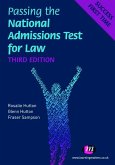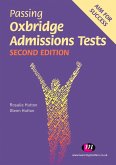
28,95 €
Sofort per Download lieferbar
eBook, PDF
2. Juni 2011
SAGE Publications

28,95 €
Sofort per Download lieferbar
28,95 €
Sofort per Download lieferbar
Broschiertes Buch
2005
Oxford University Press
Ähnlichkeitssuche: Fact®Finder von OMIKRON


Es gelten unsere Allgemeinen Geschäftsbedingungen: www.buecher.de/agb
Impressum
www.buecher.de ist ein Internetauftritt der buecher.de internetstores GmbH
Geschäftsführung: Monica Sawhney | Roland Kölbl | Günter Hilger
Sitz der Gesellschaft: Batheyer Straße 115 - 117, 58099 Hagen
Postanschrift: Bürgermeister-Wegele-Str. 12, 86167 Augsburg
Amtsgericht Hagen HRB 13257
Steuernummer: 321/5800/1497
USt-IdNr: DE450055826
Bitte wählen Sie Ihr Anliegen aus.
Rechnungen
Retourenschein anfordern
Bestellstatus
Storno